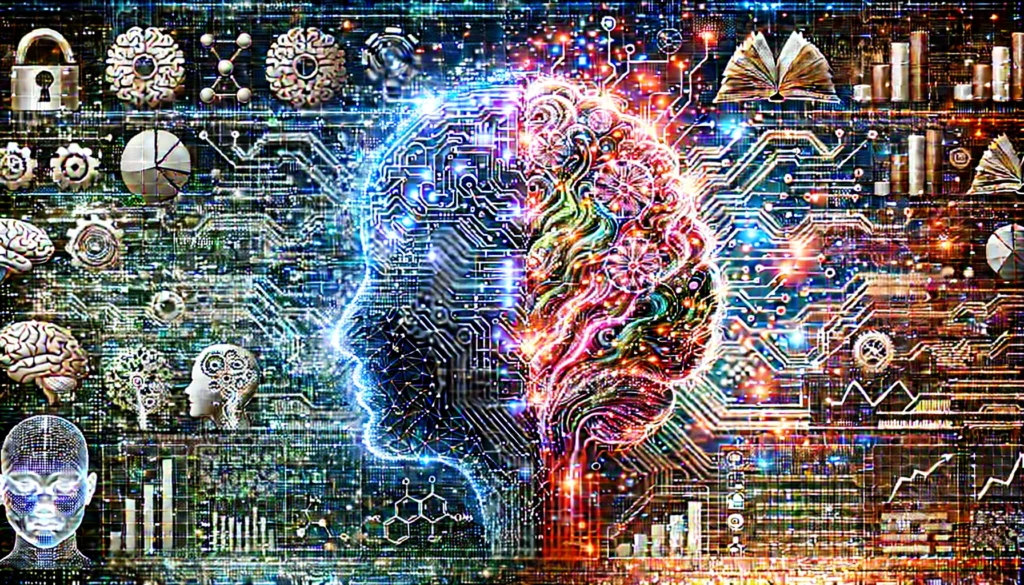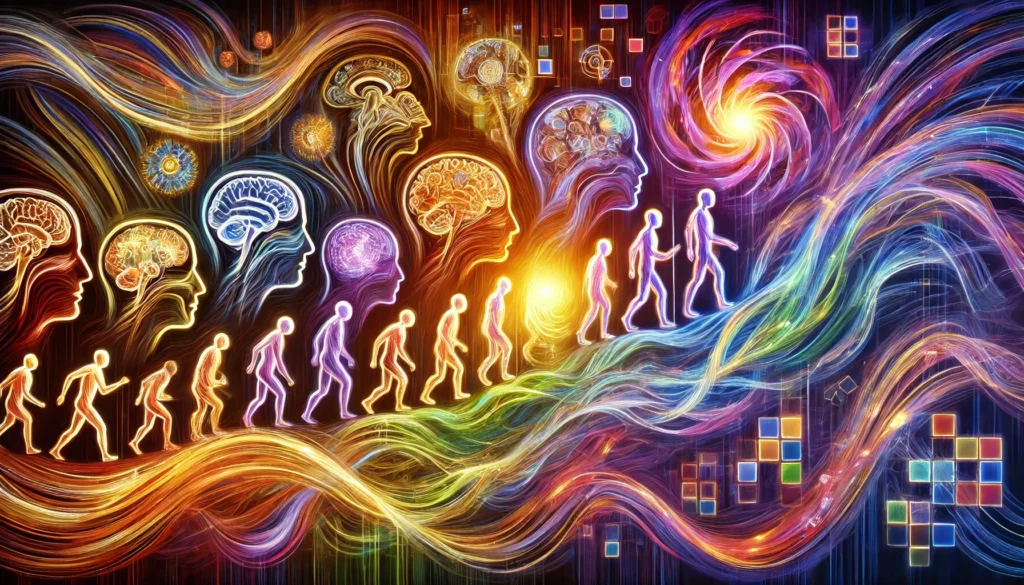Cognitive function refers to the mental processes by which knowledge and understanding are developed. These processes encompass a wide range of abilities, including memory, problem-solving, attention, and language skills. Throughout our lives, these cognitive abilities can change dramatically, influenced by both biological and environmental factors.
You may also like: Tips to Improve Low Average Memory Performance
The Biological Underpinnings of Cognitive Development
Cognitive development is rooted deeply in biological processes. From the genetic blueprints that set the stage for neural growth to the hormonal changes that influence brain development, biology plays a significant role. During early life, synaptic pruning refines neural connections, ensuring more efficient brain function. As we age, neurogenesis, the formation of new neurons, continues albeit at a reduced rate, affecting how we process and store information.
Environmental Influences on Cognitive Abilities
The environment in which we grow up and live heavily influences our cognitive abilities. Factors such as educational opportunities, socio-economic status, and exposure to diverse experiences contribute to cognitive development. Rich, stimulating environments can enhance neuroplasticity, fostering better learning and memory retention. Conversely, environments lacking in resources or supportive structures can hinder cognitive growth.
The Interplay Between Genetics and Environment
Our cognitive trajectory is shaped by a complex interplay between genetics and environment. While genes provide the potential for cognitive development, environmental factors can either enhance or impede this potential. For example, a person may inherit a predisposition for strong language skills, but without exposure to a language-rich environment, these skills may not fully develop. Understanding this interaction can inform educational and developmental strategies.
Childhood and Adolescence: Building Foundations
In the early stages of life, cognitive development is characterized by rapid growth and change. This period is marked by the acquisition of language, the development of basic motor skills, and the burgeoning ability to understand complex concepts. Neuroplasticity, the brain’s capacity to reorganize itself by forming new neural connections, is at its peak during childhood, allowing for remarkable learning and adaptation.
Language Acquisition and Cognitive Growth
Language acquisition is a cornerstone of cognitive development in childhood. The ability to learn and use language opens up pathways for complex thought processes and social interaction. During these formative years, children absorb languages rapidly, often mastering multiple languages if exposed early. This linguistic growth supports cognitive flexibility, aiding problem-solving and creative thinking skills.
The Role of Play in Cognitive Development
Play is not merely a leisure activity for children; it is a crucial component of cognitive development. Through play, children experiment with different roles, solve problems, and navigate social dynamics. This exploration enhances executive functions such as planning, attention, and self-regulation. Play also encourages imaginative thinking, providing a foundation for future learning and adaptation.
The Impact of Education on Cognitive Skills
Formal education significantly shapes cognitive abilities during childhood and adolescence. School environments introduce structured learning, critical thinking, and memory skills. The curriculum, quality of teaching, and extracurricular activities all contribute to cognitive development. A well-rounded education fosters not only academic achievement but also social skills and emotional intelligence.
Adulthood: Stability and Peak Performance
As we transition into adulthood, our cognitive abilities often stabilize and reach their peak. This phase is characterized by the refinement of skills and the application of accumulated knowledge. However, it’s crucial to recognize that while overall cognitive performance may remain stable, individual abilities may decline or improve depending on lifestyle choices and environmental factors.
The Importance of Lifelong Learning
Lifelong learning is vital for maintaining cognitive vitality during adulthood. Engaging in continuous learning, whether through formal education, hobbies, or new experiences, keeps the brain active and adaptable. This ongoing intellectual engagement can help delay cognitive decline and foster a sense of purpose and fulfillment.

Cognitive Changes in the Workplace
The workplace presents unique challenges and opportunities for cognitive development. As adults navigate their careers, they engage in tasks that require problem-solving, decision-making, and interpersonal communication. These activities can enhance cognitive skills, but high-stress environments and burnout can have adverse effects. Balancing work demands with cognitive health is essential for sustained performance.
Balancing Cognitive Health with Lifestyle
Lifestyle choices play a critical role in cognitive health during adulthood. Regular physical activity, a nutritious diet, and sufficient rest are foundational elements for cognitive well-being. Additionally, managing stress through mindfulness or relaxation techniques can protect against cognitive decline. Conscious lifestyle choices can significantly impact the trajectory of cognitive abilities.
Aging and Cognitive Decline: Navigating the Changes
The aging process brings about inevitable changes in cognitive function. Common cognitive symptoms include memory lapses, reduced attention span, and slower processing speeds. While mild cognitive impairment vs normal aging can be difficult to distinguish, understanding these changes is key to addressing them effectively.
Memory and Aging: What to Expect
Memory changes are often the most noticeable aspect of aging. While forgetting names or misplacing items is common, it is essential to differentiate between normal forgetfulness and more serious memory issues. Understanding the types of memory affected by aging, such as short-term versus long-term memory, can help in identifying potential concerns early.
The Role of Attention and Processing Speed
As we age, our ability to maintain focused attention and process information quickly may decline. These changes can impact daily activities, making it challenging to multitask or learn new skills. However, with appropriate strategies and interventions, it is possible to compensate for these shifts and maintain cognitive function.
Emotional and Social Influences on Cognitive Aging
Emotional health and social engagement significantly influence cognitive aging. Positive emotional states and robust social networks can enhance cognitive resilience, reducing the risk of cognitive decline. Conversely, social isolation and chronic stress can contribute to cognitive deterioration. Promoting emotional well-being and social connections is integral to healthy cognitive aging.
What is Normal Cognitive Decline?
Normal cognitive decline is typically gradual and affects certain cognitive domains such as memory and processing speed. This type of decline is a natural part of aging and does not necessarily interfere significantly with daily life.
Characteristics of Normal Cognitive Decline
Normal cognitive decline often manifests as subtle changes in cognitive abilities. These changes may include slower recall of information or challenges with multitasking. Importantly, normal decline does not severely disrupt daily activities or the ability to live independently. Recognizing these normal patterns can help differentiate them from more serious conditions.
Distinguishing Normal Decline from Cognitive Impairments
Distinguishing normal cognitive decline from cognitive impairments involves understanding the extent and impact of changes. While normal aging may include minor forgetfulness, significant memory loss or confusion can signal impairments. Professional assessments can help determine whether changes are within the expected range for age or indicative of a deeper issue.
Strategies for Managing Normal Decline
Managing normal cognitive decline involves maintaining a healthy lifestyle and engaging in activities that support cognitive health. Regular mental exercises, such as puzzles or learning new skills, can help keep the brain active. Additionally, maintaining social connections and emotional well-being can mitigate the effects of normal cognitive decline.
Addressing Cognitive Impairments: Strategies and Interventions
Improving cognitive function in the elderly and managing cognitive changes in older adults require a multifaceted approach. Here are some effective strategies:
Cognitive Training and Rehabilitation
Cognitive training programs designed to improve specific cognitive skills have shown promise in enhancing cognitive function. These programs often include exercises targeting memory, attention, and problem-solving abilities.
Tailored Cognitive Exercises
Cognitive training can be customized to address individual needs. Programs may include memory drills, puzzles, and tasks that challenge reasoning skills. By focusing on specific areas of concern, cognitive exercises can help maintain or even improve cognitive function.
Rehabilitation for Cognitive Impairments
Cognitive rehabilitation involves structured interventions to help individuals regain lost cognitive abilities. This approach often includes therapy sessions focused on strategies to compensate for deficits. Rehabilitation aims to enhance independence and quality of life for those experiencing cognitive impairments.
The Role of Technology in Cognitive Training
Technology plays an increasingly important role in cognitive training, offering digital platforms and apps designed to engage the brain. These tools provide interactive and adaptive exercises that can be tailored to individual progress. Utilizing technology can make cognitive training more accessible and engaging.
Lifestyle Modifications
Adopting a healthy lifestyle can have a profound impact on cognitive health. Regular physical activity, a balanced diet rich in antioxidants and omega-3 fatty acids, and adequate sleep are all crucial components of maintaining cognitive vitality.
The Impact of Nutrition on Cognitive Health
A diet rich in nutrients supports brain health and cognitive function. Foods high in antioxidants, omega-3 fatty acids, and vitamins can protect against cognitive decline. Consuming a balanced diet with plenty of fruits, vegetables, and whole grains is essential for long-term cognitive health.

The Benefits of Physical Activity
Physical exercise boosts blood flow to the brain and promotes the release of neurotrophic factors that support neural health. Regular exercise can improve memory, attention, and processing speed. Engaging in activities like walking, swimming, or yoga can enhance both physical and cognitive well-being.
Sleep and Cognitive Function
Adequate sleep is crucial for cognitive health, allowing the brain to consolidate memories and repair itself. Poor sleep quality can contribute to cognitive decline and impair daytime functioning. Establishing healthy sleep habits and addressing sleep disorders are vital for maintaining cognitive vitality.
Social Engagement and Mental Stimulation
Staying socially active and mentally engaged can help stave off cognitive decline. Activities such as reading, playing musical instruments, and participating in social groups stimulate the brain and contribute to cognitive resilience.
The Role of Social Connections
Strong social connections provide cognitive benefits by offering emotional support and mental stimulation. Engaging with friends, family, and community groups can enhance cognitive health and reduce the risk of decline. Social interactions challenge the brain, promoting cognitive resilience.
Engaging in Mental Challenges
Participating in mentally stimulating activities, such as puzzles, games, or learning new skills, keeps the brain active. These activities challenge cognitive functions and encourage the development of new neural pathways. Regular mental challenges can enhance cognitive flexibility and protect against decline.
Cultural and Creative Activities
Involvement in cultural and creative activities, like music, art, or dance, can stimulate cognitive function. These activities engage different areas of the brain, promoting mental agility and emotional well-being. Embracing creative pursuits can enrich cognitive health and overall quality of life.
Medical Interventions
In some cases, medical intervention may be necessary to address cognitive impairments. Depending on the underlying cause, treatments may include medications, therapy, or management of chronic health conditions.
Pharmacological Treatments for Cognitive Decline
Medications may be prescribed to manage symptoms of cognitive decline, particularly in cases of dementia or Alzheimer’s disease. These treatments can help slow progression and improve quality of life. Working closely with healthcare providers ensures appropriate medication management.
Therapeutic Approaches to Cognitive Health
Therapy, including cognitive behavioral therapy (CBT), can support individuals experiencing cognitive impairments. These therapeutic approaches focus on coping strategies, emotional health, and cognitive skill development. Therapy can enhance resilience and improve daily functioning.
Managing Health Conditions to Improve Cognition
Addressing chronic health conditions, such as hypertension or diabetes, can positively impact cognitive health. Effective management of these conditions reduces the risk of cognitive decline. Regular medical check-ups and adherence to treatment plans are essential components of cognitive care.
Can Cognitive Impairment Be Reversed?
While some cognitive impairments may be reversible, particularly those caused by treatable conditions or lifestyle factors, not all cognitive decline can be undone. However, early intervention and a proactive approach can slow the progression and improve quality of life.
Identifying Reversible Causes
Certain causes of cognitive impairment, such as vitamin deficiencies or medication side effects, may be reversible. Identifying and addressing these factors can lead to significant improvements in cognitive function. Regular health assessments can help pinpoint reversible causes.
Future Directions: The Role of Technology and Research
Advancements in technology and research are paving the way for innovative approaches to understanding and managing cognitive changes. From neuroimaging techniques that offer insights into brain function to the development of nootropic supplements aimed at enhancing cognitive performance, the future holds exciting possibilities for cognitive health.
The Promise of Nootropics and Biohacking
Biohackers and researchers are increasingly exploring the potential of nootropics—substances that may enhance cognitive function. While the efficacy and safety of these supplements require further study, they represent a burgeoning area of interest in the quest for cognitive optimization.
Exploring the Efficacy of Nootropics
Research into nootropics is ongoing, with studies examining their potential benefits and risks. These substances range from natural compounds like caffeine and ginkgo biloba to synthetic drugs. Understanding their impact on cognitive function is crucial for informed use.
The Ethical Considerations of Biohacking
Biohacking, or self-directed biological experimentation, raises ethical questions about cognitive enhancement. The pursuit of cognitive optimization must balance potential benefits with safety concerns. Engaging in open discussions about the ethical implications is vital as the field evolves.
The Future of Cognitive Enhancement
The future of cognitive enhancement may involve a combination of nootropics, technology, and personalized interventions. Ongoing research aims to uncover safe and effective methods for boosting cognitive performance. These advancements hold the potential to revolutionize cognitive health management.
Technological Innovations
Emerging technologies, such as virtual reality and brain-computer interfaces, are also being investigated for their potential to support cognitive health. These innovations offer new avenues for cognitive training and rehabilitation, opening up possibilities for personalized interventions.
Virtual Reality for Cognitive Training
Virtual reality (VR) provides immersive environments for cognitive training, offering realistic scenarios that challenge cognitive skills. VR can simulate activities of daily living, providing a safe space for practice and improvement. Its adaptability makes it a promising tool for personalized cognitive interventions.
Brain-Computer Interfaces: Bridging Mind and Technology
Brain-computer interfaces (BCIs) represent cutting-edge technology that connects the brain directly to external devices. BCIs have potential applications in cognitive rehabilitation, allowing for direct interaction with digital tools. This technology offers innovative ways to support individuals with cognitive impairments.
Personalized Cognitive Interventions Through Technology
Technology enables personalized approaches to cognitive health, tailoring interventions to individual needs and progress. Digital platforms can adapt exercises based on user performance, providing customized cognitive training. Personalized interventions enhance engagement and efficacy in cognitive health management.

Conclusion: Embracing Cognitive Changes
Understanding cognitive changes across the lifespan empowers us to embrace these shifts with knowledge and strategies to navigate them effectively. Whether you’re a health and wellness coach, science journalist, or biohacker, recognizing the factors that influence cognitive function and the interventions available can help you support yourself and others in maintaining cognitive health throughout life.
Supporting a Holistic Approach to Cognitive Health
A holistic approach to cognitive health considers the interplay of biological, environmental, and lifestyle factors. Integrating various strategies, from lifestyle modifications to technological interventions, supports comprehensive cognitive care. This approach ensures a well-rounded perspective on cognitive well-being.
Celebrating the Resilience of the Human Mind
As we continue to unravel the intricacies of cognitive changes, one thing remains clear: the journey of cognitive evolution is as fascinating as it is complex, and our ability to adapt and thrive is a testament to the remarkable resilience of the human mind. Embracing cognitive changes with curiosity and openness fosters a positive outlook on cognitive aging and development.
Further Reading:
What to Know About Cognitive Decline in Older Adults
How cognition changes before dementia hits
Important Note: The information contained in this article is for general informational purposes only, and should not be construed as health or medical advice, nor is it intended to diagnose, prevent, treat, or cure any disease or health condition. Before embarking on any diet, fitness regimen, or program of nutritional supplementation, it is advisable to consult your healthcare professional in order to determine its safety and probable efficacy in terms of your individual state of health.
Regarding Nutritional Supplements Or Other Non-Prescription Health Products: If any nutritional supplements or other non-prescription health products are mentioned in the foregoing article, any claims or statements made about them have not been evaluated by the U.S. Food and Drug Administration, and such nutritional supplements or other health products are not intended to diagnose, treat, cure, or prevent any disease.


